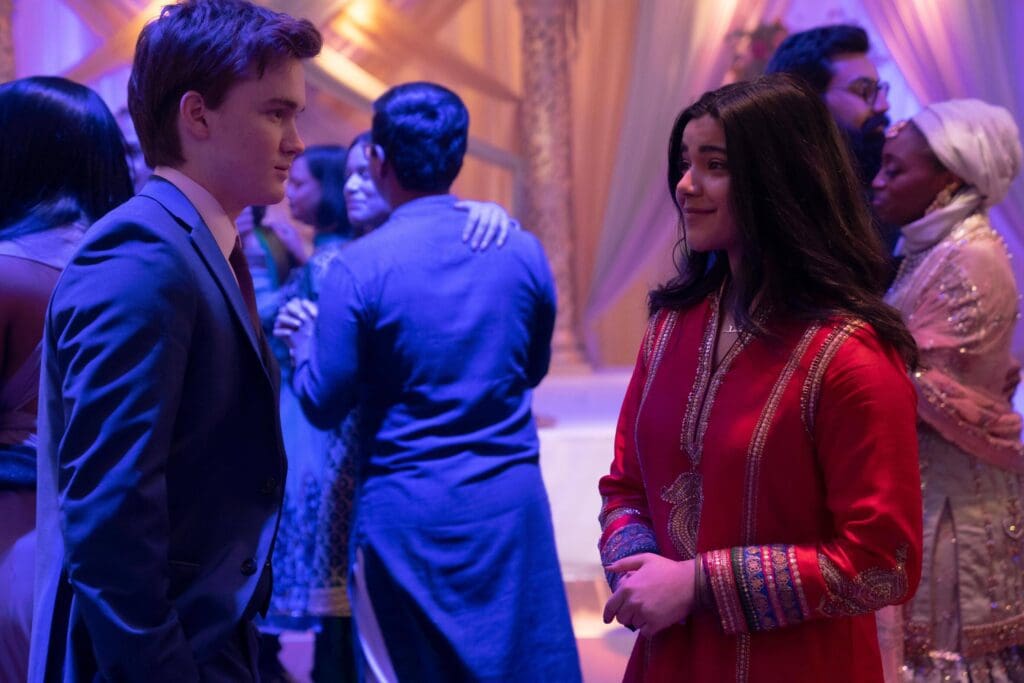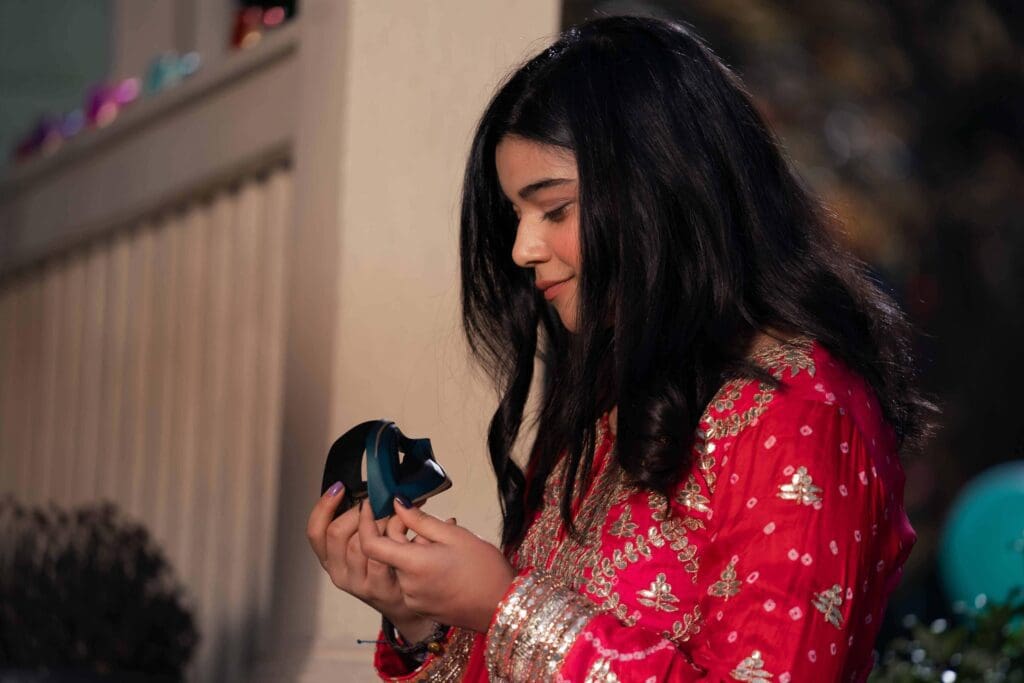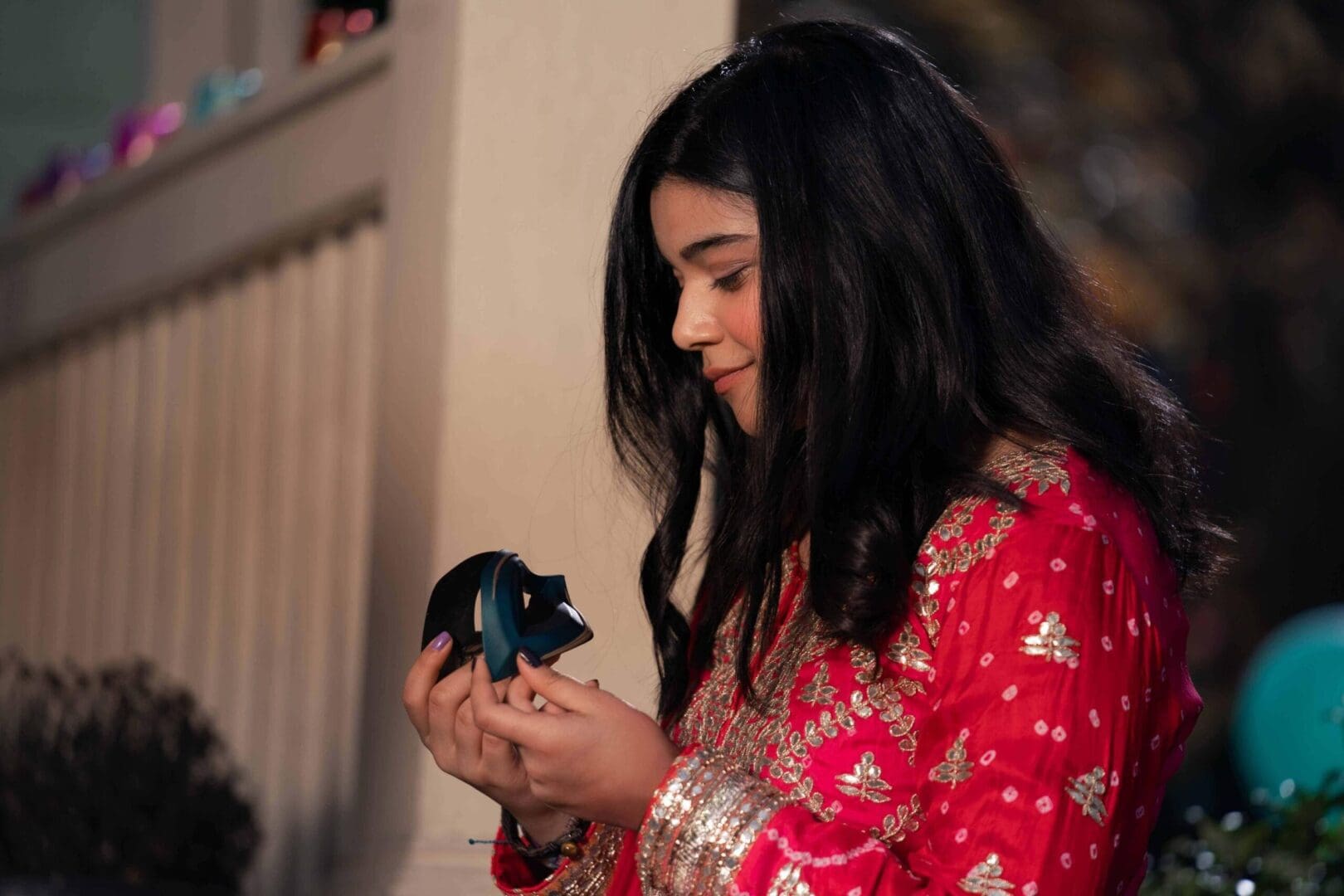Share this
By presenting us with Ms. Marvel, Kevin Feige and Marvel, open the door to conversations about diversity, representation, and different experiences of growing up in America.
From the moment “Blinding Lights” by the Weekend started playing in the pilot episode of Ms. Marvel on Disney+, and my daughter’s head began to bob with the beat, I could tell this was going to be a very different Marvel experience for the two of us.
The two of us share Marvel. It has been our common ground of fandom for years. We have watched the movies, read the comics, and poured over the (age appropriate) TV shows (no Daredevil, Punisher or Jessica Jones for her yet).
READ MORE: Representation Matters: A Conversation About Ms. Marvel
My Daughter and I started reading the adventures of Kamala Kahn about five years ago when she was in second grade. She was struggling with reading, and it was hard to find stories that lit her passion.
I wanted to get her into reading and so I turned to my first love of reading: comics. At the time, a friend was telling me how the “new” Ms. Marvel had become her favorite character. I decided to give it a try and my daughter and I read the first issue. We were both hooked.
Much like this first episode of the Disney+ show, the deeper themes of assimilation, representation and identity went over her head at the time. What did speak to her was a girl, with her head in the clouds, proving everyone wrong. When everyone says you should be X … this hero says “No, I won’t.”
Kamala Kahn’s impact on representation and diversity in the comic world should not and cannot be overstated. She defied the conventional wisdom that a female lead could not sell comics to a broad audience. Also, and perhaps most importantly and what made her character stand out, it that she did not look like everyone else.

As her character in the show says, “It’s not really the brown girls from Jersey City who save the world”. And the conventional, steeped in patriarchal, misogynistic thinking, and racist ideologies, was that they couldn’t sell comic books or action figures either. A character like Kamala could not possibly speak to a broad audience.
However, all that conventional wisdom that was proved wrong in 2014 with Ms. Marvel, has been proved wrong again in 2022. After the head bobbing, and transfixed wide eyes, when the show ended my daughter turned to me and said, “Wow, I loved it!”
She loved how the show captured the spirit of Kamala. Everything that character means to my daughter, and to me as a father, was conveyed on screen. My daughter noted the changes from the comic but reasoned that they were telling a slightly different Kamala origin story.
Kamala’s greatest power to me as a father is that she tells my daughter it is okay to be weird, and that weird, powerful and being a girl do not have to be contradictory ideas. For my daughter, Kamala makes the word “weird” a good one. She does what is right, not what is convenient or easy. She, along with so many teen female hero’s that have come along in the last seven years, is the role model I want for my daughters.

Iman Vellani, has taken a character from the pages of a comic and given her life, and now expands the myth of Ms. Marvel. She makes Kamala exactly the kind of girl that I hope my daughters grow into. A person who struggles, fails, keeps trying and never stops dreaming.
In a few years, my daughter will revisit the show and see where she fits into Kamala’s narrative and where her narrative differs from her own. She will see similarities and differences between being a Jewish girl several generations in growing up in America and being a Pakistani American girl growing up with immigrant parents. These are important differences and conversations, some which began right after the show (she wanted to know where Pakistan was) and some that will have to wait as she learns more about herself and the world.
For now my daughter sees no difference between her experience as an American girl and Kamala’s. She will one day see the differences – good and bad. And I will be there with her to help her through that journey. There is so much more left for Kamal Kahn to teach her and show her. The comics and this show will help her learn and grow a sensitivity and awareness that will serve her well in the world.
By presenting us with Ms. Marvel, Kevin Feige and Marvel, open the door to conversations about diversity, representation, and different experiences of growing up in America. The MCU might be a story about fictional people on a fictional Earth, but the issues it tackles are real. They allow my family to grow. They give me an opportunity to have conversations with my children that are natural but important.
Personally, I loved the show. I found it entertaining, fun, and it reminded me of growing up. But this is not a show for me to enjoy. It is a show for my daughter. It is a show that is going to entertain us all, but also teach us all.
It will teach us about other cultures that do not always get as much representation and normalization as they should. It will teach young girls that they can be heroes and old white men that seeing different colors and genders on screen does sell. It will teach that us about what makes a hero and that anything is possible if we dream. These are just the lessons my daughter got from the first episode. We can’t wait to see where Ms. Kahn’s adventure goes and what this show teaches us from here!



